Pat McQuaid, former UCI President; people forget that before he moved into cycling ‘politics’ he was a good bike rider.
We thought it was time someone gave him a break, stopped asking about Lance and Hein and took him back to those days when he was pushing the pedals rather than a pen…
Coming from the family you did was it possible you could be anything other than a cyclist – and there were a few of you McQuaid boys on the go?
“No, there wasn’t much possibility.
“My father Jim was a successful cyclist – indeed I saw him win races when I was a child.
“Of his 10 children, seven were boys and all had a go at racing at some stage or another with different levels of success including two, Kieron and Oliver who competed in the Olympic Games.”
Your first race?
“That would have been an informal race among a group of kids aged around 12 years-old around a big square in a residential estate close to where I lived.
“During the summer holidays from school we used to meet there every evening and race each other around.
“My first ‘organised’ race would have been a U16 race on the Santry Stadium track.”
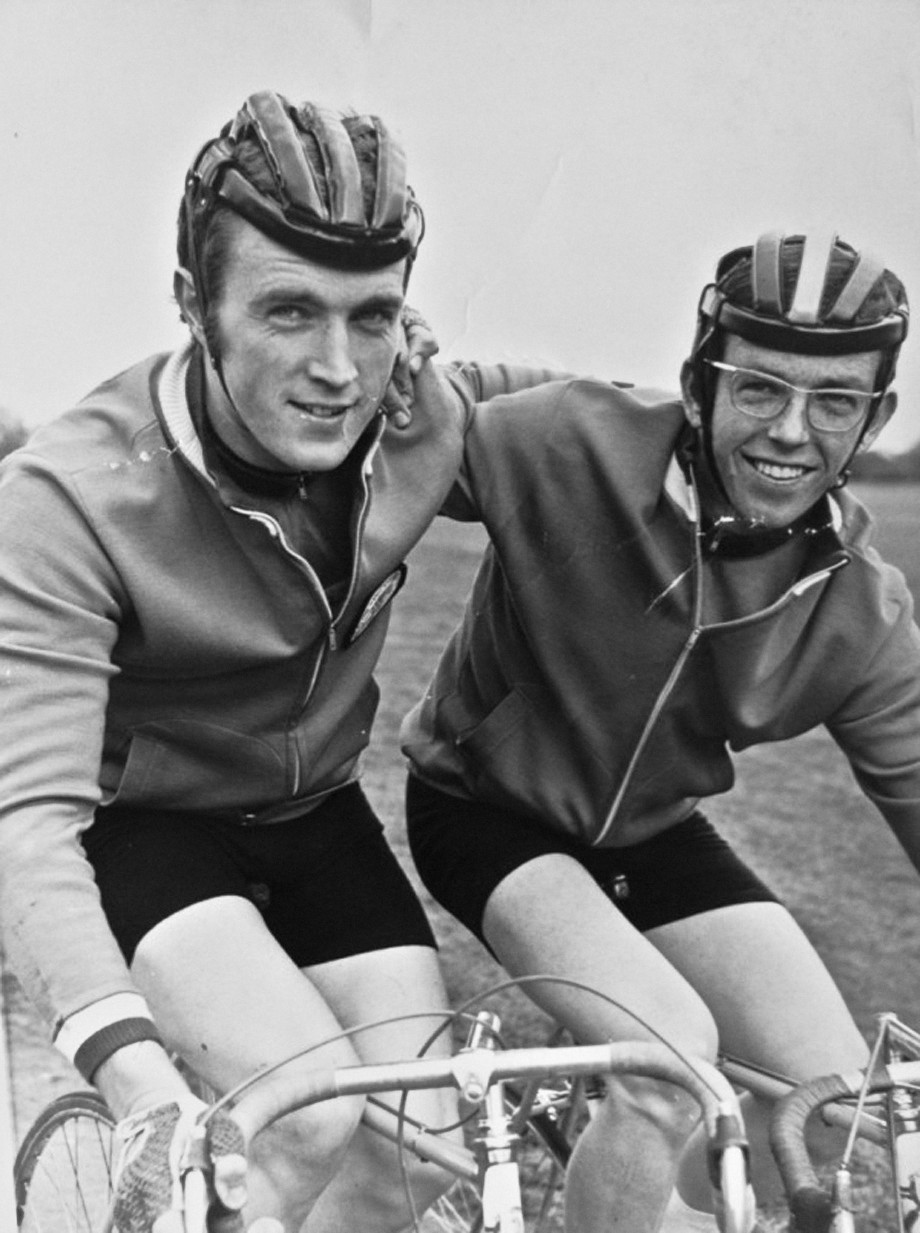
Was there ‘stick’ around the dinner table if you hadn’t performed?
“Of course there would be.
“All our meals were filled with cycling talk – much to the chagrin of my three sisters – and we were always expected to win.
“My father was a ‘winner’ and he expected us to be the same, though it was always more by encouragement than by any level of force.”
Your ‘breakthrough’ year was 1972, why then?
“I was a good junior in the mid-sixties with several wins in junior events and then turned senior in 1967.
“I won my first senior race the Tour of Dundrod in Northern Ireland that year beating all of the top names from a breakaway group, Morris Foster, Joe Smyth, Davey Kane amongst them.
“Then in 1969 I won the first stage of the Tour of Ireland but lost the jersey the following day.
“At that stage I decided that rather than head for Europe and try my hand there I would go to College and so I went to St. Mary’s College, Strawberry Hill in London, to study Physical Education.
“I did a bit of racing in that area while I was at College but nothing serious.
“However I came home from doing my final exams in June 1972 and rode the Shay Elliott trophy, one of Ireland’s Classic races in the Wicklow Mountains.
“The great Peter Doyle got clear at the beginning of the main climb, Glenmalure and over the top I started chasing, I caught him and worked with him to the finish and in a rather surprising sprint I beat him by inches.
“It was the first time he had been beaten in 16 races over the previous two months so it caused quite a stir!
“And it put me in line for Olympic selection but in the end I didn’t get selected and my brother Kieron did.”
The Shay Elliott win, I believe he was an inspiration to you – that must have been a special day for you?
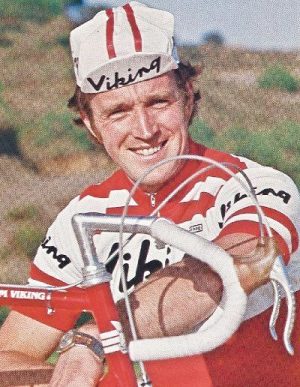
“It was, for the reasons I laid out above. But yes, Shay Elliott was my idol as I was growing up.
“My father had raced a lot with him when he and Shay were young and they were good friends.
“I followed his career as closely as I could; remember, there was no internet in those days, it was just little result articles hidden away in the national papers every day.
“I remember well one Saturday night – I would have been about six or seven years-old – being brought downstairs from bed to meet Shay and his wife who were visiting my father and mother. I was, as you can imagine, very shy and awestruck.”
The Tour of the Grampians that year, as a Scot I’m interested in your memories of the Scottish mountains.
“I remember them as being not as hard as those later encountered in the Tour of Britain Milk Race.
“They were very ‘raceable’ for a rather big guy like me.
“Another race I enjoyed in those days was the Scottish Milk Race, which also wasn’t overloaded with hard climbs.”
Two Ràs stage wins in ’74 – you won two of Ireland’s biggest races, the Shay Elliott and Tour of Ireland but the Ràs escaped you?
“Yes, but remember the political divide in Irish cycling which went on for many years, resulting in two separate racing calendars in Ireland and no crossover for competitors.
“I was in the ICF and had never ridden an NCA race.
“However talks between riders had got underway to bring the two associations together (the political leaders were never going to though) and this resulted in an ICF team being invited to the Ràs in 1974 and an NCA being invited to the Tour of Ireland.
“Our team had not long before completed the Milk Race and we had great form, resulting in us cleaning up, winning most of the stages and the overall too, with Peter Doyle.”
You were National Champion in ‘74, that must have been hard to win, you’d be well marked?
“The National Championship is always a hard race.
“Yes, I would have been marked but I did something I rarely did in my career; I took off alone with about 50 miles to go, got a good lead and held it easily to the end.
“I was always a good sprinter and tended to win most of my races with a sprint.”
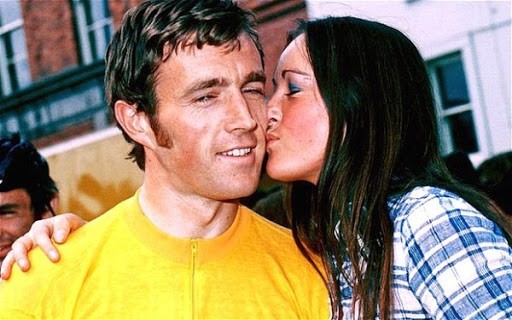
Two stage wins in South Africa’s Rapport Tour in ’75 so no Olympics for you, your thoughts on that adventure, all these years later?
“This has been fairly well documented.
“After the Tour of Ireland in ‘75 which I won, Sean Kelly and I were in prime position to go to the Olympic Games in Montreal but our season ended with that Tour as the Irish calendar more or less finished at the end of August.
“It meant we wouldn’t be racing for six months.
“We got invited to South Africa which, for us, meant extending our season right into November.
“Also it was a very hard race with 11 of the 14 days racing having double stages.
“We were found out of course, politics in Ireland (both national and cycling) came into play very strongly and we got suspended from the Olympics.
“We weren’t suspended internationally because we rode the Milk Race in May but we couldn’t ride the Olympics in July.
“Indeed, in the Milk Race Sean beat the future Olympic Champion Bernt Johansson in a stage into Sheffield!”
Two Tour of Ireland wins – your memories of those?
“Great memories.
“I had a great team on both occasions with my brother Oliver and a young Sean Kelly.”
The Tour of the Cotswolds, a second place and a win – that was a tough race, why did it suit you so well?
“I was a teacher and rather heavily build so it always took me some time into the season to get going.
“Irish schools closed in June for the summer so then I could train full-time all summer and by August I would have good form.
“The Tour of the Cotswolds was a great race, long, hard and usually very warm.
“It was up and down all day and I could cope well with that type of terrain.”
Professional with Viking in ’78, how did that come about?
“Viking were based in Northern Ireland and so having an Irish rider in the team suited them.
“My good friend John Pierce, the photographer, was doing some work for them and he told Alan Rushton about me as John had both ridden the Tour of Ireland with me and then became a photographer on the race.”
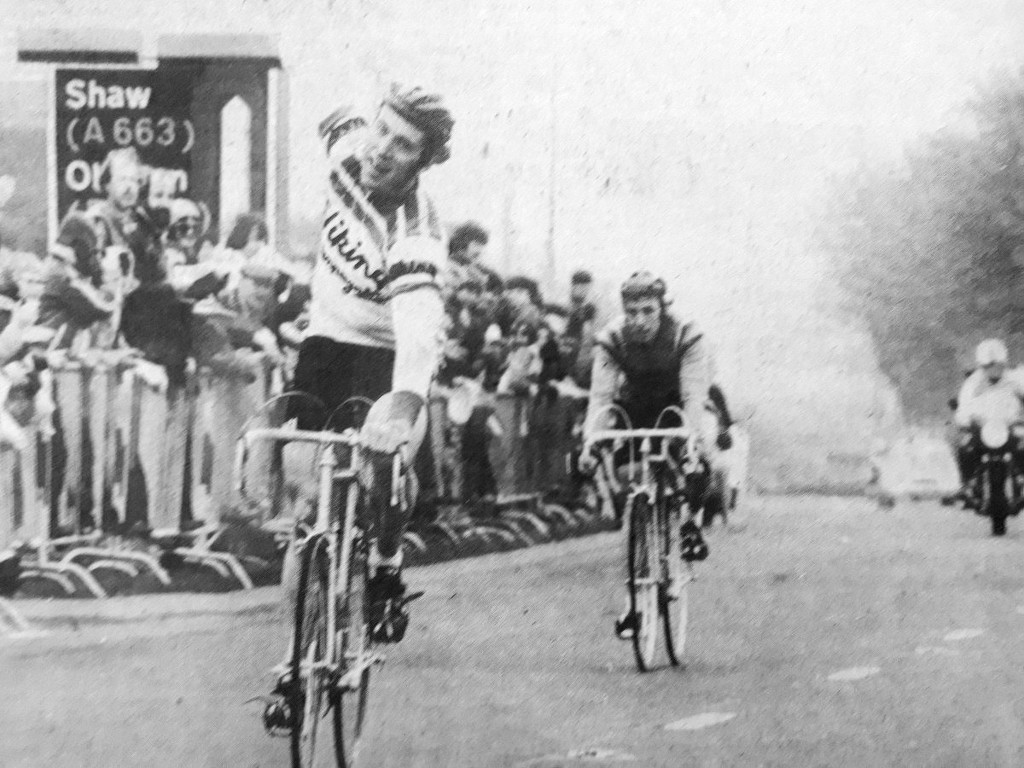
A win in the Tour of the Pennines, never easy to win against the English pros. What are your memories of that one?
“Yes, again that was late in the season on a very hard course but one which I liked.
“Our job that day was to ride for Sid (Barras) and Keith (Lambert), our two leaders.
“During the race I went into a break, mainly to look after the team’s interests, but the break stayed away.
“I got stronger as the race progressed and ended up alone with one of Britain’s greatest cyclists, Les West.
“However Les was never known for his sprinting prowess and when it came to the finish I won easily.”
You rode the Worlds in ’78 – your recollections?
“A great experience on a very hard course, the Nurburgring, in Germany.
“I wasn’t used to racing at that level and so when the going got really heavy I couldn’t stick with it and climbed off.”
Did your time as a pro stand you in good stead for your later career in cycling administration?
“Not really… it was all of the different experiences I had as a cyclist, my education, my coaching, my race organisation, which guided me later.”
Back to amateur in ’80 – why no third year as a pro?
“I was getting a bit fed up with the constant travel to the UK for racing.
“My family were growing up and as such I had responsibilities to meet.”
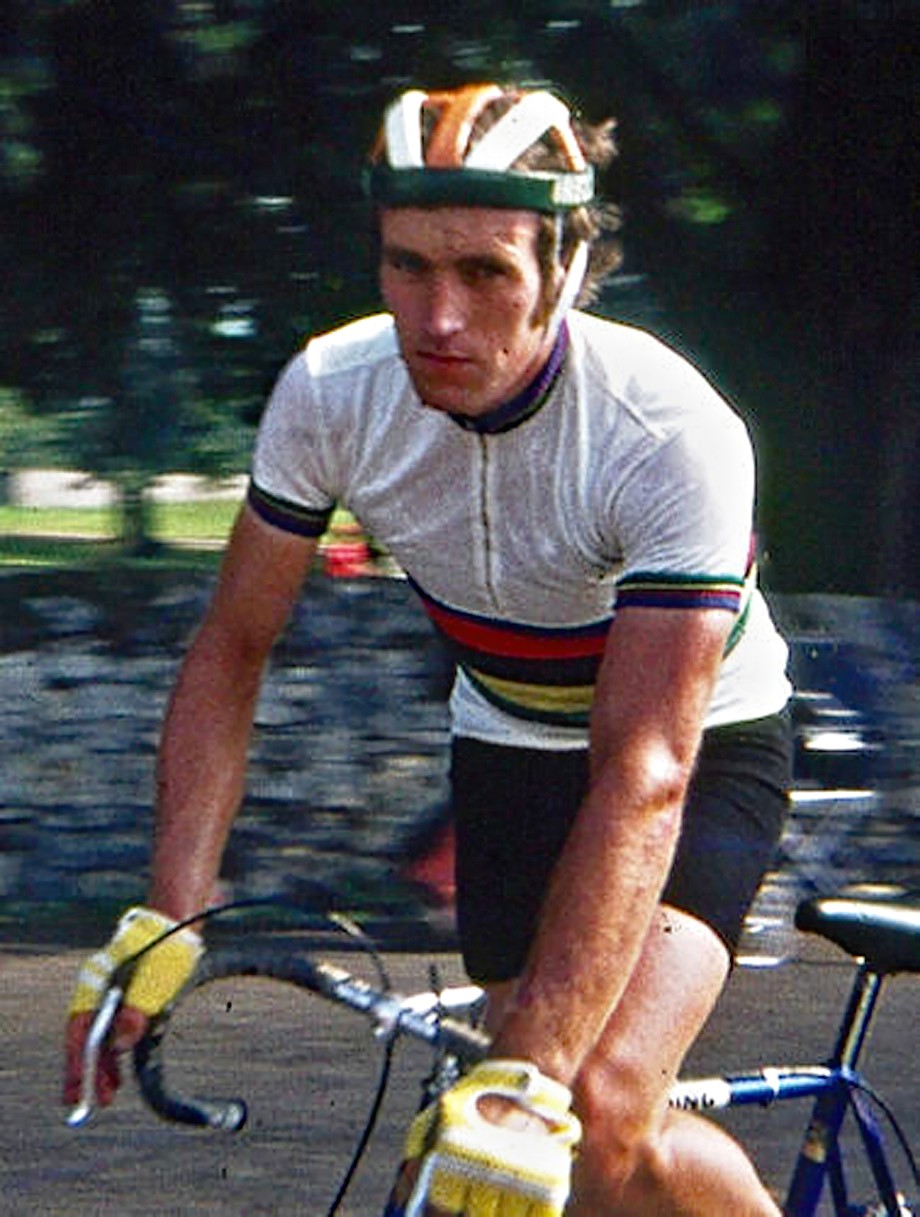
You were still a young man when you called ‘time’ on your pro career?
“I was relatively, yes; 31 years-old compared to what they are doing nowadays but I immediately went into coaching and loved that, particularly building a successful group to go to the Los Angeles Olympics.”
Anything you wish you had done differently?
“To be honest, no.
“It was a well-travelled road with lots of turns and twists, lots of highs and lows but a great experience.
“I think history will show I made a difference in our sport.”



